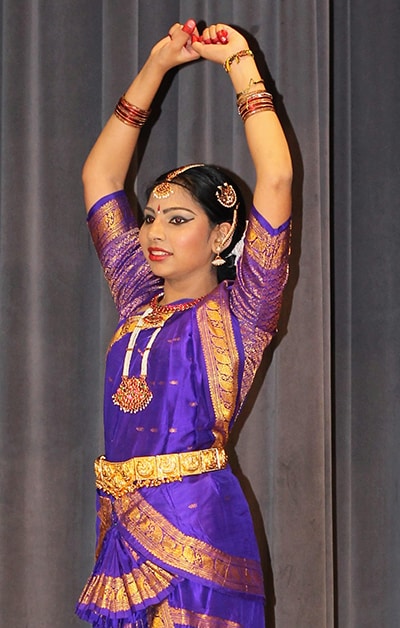Real Stories from People Living with Thalassemia – Eashani Ghosh
Personal Story of Eashani Ghosh

“Thalassemia impacts most of my life, but it does not define who I am.”
Those are impressive words coming from anyone discussing life with a chronic disorder such as thalassemia. They are even more impressive coming from Eashani Ghosh, who is only 15 years old.
Eashani, who prefers to be called Shae, takes the many challenges presented by thalassemia, such as needing to be out of school for treatment, and turns them into opportunities. For example, she has sometimes felt uncomfortable explaining to her teachers and classmates about why she must often miss school classes or activities in order to receive the regular blood transfusions that are a major part of her treatment for thalassemia. “Most people don’t know about thalassemia,” Shae says, and as a result she has sometimes experienced negative reactions from other students. In some instances, these negative reactions have the potential to affect personal well-being and self-esteem.
Fortunately, Shae’s parents consider her to be confident and self-assured enough to know how to address situations like this. “Instead of dwelling on negative experiences, Shae would rather turn her energy toward doing good for others,” her mother says.
One way Shae does this is by working to help other teenagers with thalassemia. She knows that others her age who have thalassemia face challenges similar to hers, whether or not they disclose to others that they have thalassemia.
In her quest to help others like her, she started an online peer support group for teenagers with thalassemia. This support group is called Connect THAL, an acronym for Connect To Health And Life. The main objective of this group is to connect with other teens with thalassemia to talk about their stressful teenaged high school life. She believes that talking and sharing with peers who are going through similar situations can significantly relieve stress. Shae also believes that a caring support system is important and knows that having parents, trusted adults, close friends, and household members who are willing to listen makes all the difference.
In 2021, Shae also made another contribution to the thalassemia community. She worked on a special high school project in which she conducted a survey of thalassemia patients to determine their knowledge of the importance of hydration and how well they stayed hydrated. Shae was invited to present the results of this survey at the Cooley’s Anemia Foundation’s annual Patient-Family Conference. Not only was her presentation well received, but the poise and confidence she displayed impressed the attendees at the conference.
Shae believes that in order to be an effective champion, you must be involved in the community. In testimony to that belief, she is a member of the Mayor’s Youth and Advisory Commission in Tempe, Arizona. The mayor seeks advice from this commission to ensure the needs of their generation are included in the city’s annual planning.
Shae is very involved in arts and music and is not shy about embracing her Indian culture. She takes lessons in Indian classical musical dance form called Bharatnatyam. She also mentors younger children in this ancient dance form. In addition, Shae also is learning Hindustani classical music. In 2020, the City of Chandler awarded her best overall teen act for her performance in City Youth and Talent show.
When asked about her aspirations after high school, Shae laughs and says, “I am a teenager. I don’t know what my profession will be, but I know I want to study applied math and computer science.” She is full of laughter, optimism, and life and credits her family for her strength and resilience. “Having support from my family and from other trusted adults has been important to me,” she says. “In addition to feeling supported, talking with them helped me realize many things I had not thought about.”
Shae also has the following tips for other teens who are facing challenges related to thalassemia:
- Don’t worry about what other people may think – always be true to yourself.
- It isn’t your job to make others feel comfortable with thalassemia. It’s your job to make yourself feel comfortable with thalassemia.
- A strong support system of family or friends can help you build the resilience you need.
In summing up her feelings about having thalassemia, Shae says, “Instead of asking “Why me with thalassemia?” I say, “Thalassemia does not define who I am, so what if it is me?”
CDC thanks Shae for sharing her personal story.
